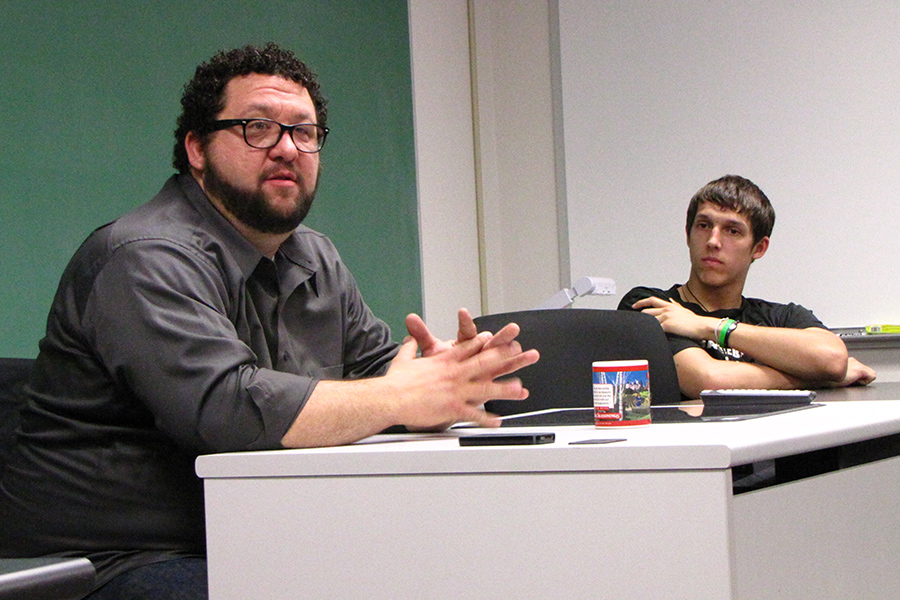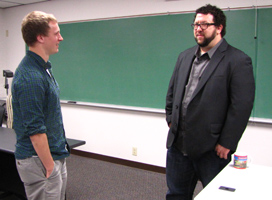

Venture Boldly

Office of Communications
2 East South Street
Galesburg, IL 61401


by Rana Tahir '13
Pulitzer Prize-winning writer Mark Konkol recently shared with Knox College students some of his experiences as a reporter at the Chicago Sun-Times, explaining his approach to covering the news and offering tips to aspiring journalists.
Konkol, along with Sun-Times colleagues Frank Main and John Kim, won a 2011 Pulitzer Prize for Local Reporting for their investigative series on gun-related violence in Chicago neighborhoods and the impact of the so-called "no-snitch" code.
In awarding the prize, Pulitzer jurors described the series as an "immersive documentation of violence in Chicago neighborhoods, probing the lives of victims, criminals, and detectives as a widespread code of silence impedes solutions."
At Knox, Konkol described some of his work in detail, telling students that they could draw lessons from his experiences and apply them to their own journalistic endeavors.
"You have to be resilient, and you have to ask questions that you think there are no answers to," Konkol said.
The idea for the Pulitzer-winning series started when he decided to revisit a story he'd covered in 2008: a particularly violent weekend in Chicago when 40 people were shot and seven died. Konkol wanted to find out what kind of success the police had in solving those shootings.
"We went out on the street. We found victims" from the shootings, he said.
Konkol and Main took one of those victims, Willie Brown, to a fast-food restaurant to interview him. While they talked, another man entered. "And Willie Brown leans back in his chair and says, ‘That's the guy that shot me right there,'" Konkol recalled.
Brown then said that he told police who shot him, but later withdrew the accusation at the request of his mother. Brown's mother had reminded him that when he was sent to jail as a youth, it "ruined your life," Konkol said.
During another interview, a shooting victim showed Konkol the bullet that struck him and a piece of bone that had been ejected from his body.
"Over and over again we would find these stories," Konkol said, emphasizing the importance of in-person interviews. "Those are details that you don't get unless you're there. Those are details that you don't get unless you wait longer than you want to be there."
"You have to be able to talk to people and listen to them and go to the places where they live," he added. "You have to search for documents you don't think you can get. And you have to come up with an idea and go after it with everything you can."
In discussing the writing process, Konkol advised students to make an outline of stories "when they're big and they're important to you."
"You don't go into a story with an idea of what it's going to be," he said. "You report, and you think about the story you're going to tell and how you're going to tell it."
"If you learn how to think, it will make you a better writer."
Konkol's talk at Knox was sponsored by the Joe W. Morgan '34 Fund for Journalism. This year, the fund also has helped to bring to campus two other award-winning journalists: environmental writer Paul Greenburg, author of Four Fish, and Jonathan Katz, former chief correspondent in Haiti for The Associated Press.
Published on May 23, 2012